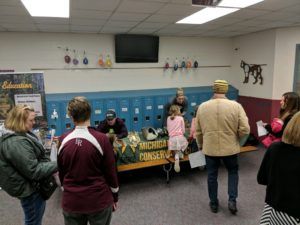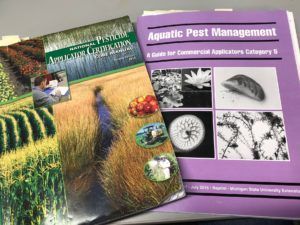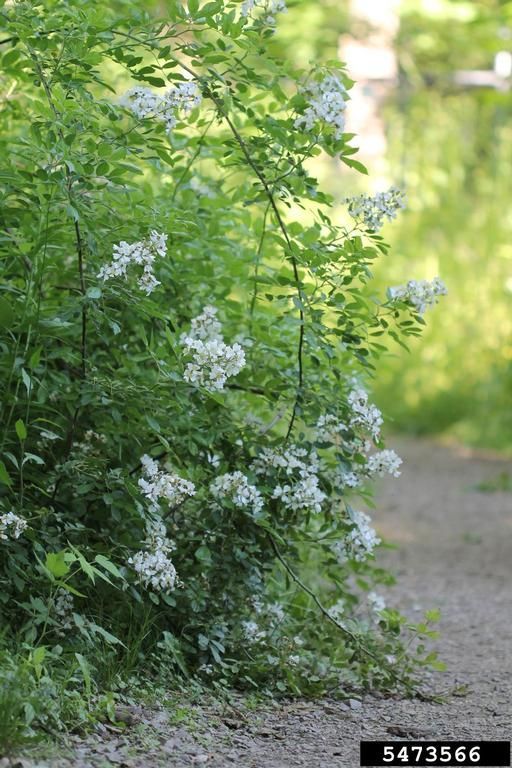From an Educational Outreach Event to Passing Pesticide Certification Exams
It is never a dull week here at MUCC, whether your packing for a weekend show or attending Natural Resource Commission meetings, everybody here is working in some way to promote MUCC’s mission. Its only Wednesday, and so far this week I have participated in an outreach event and passed two pesticide examinations as a Huron Pines AmeriCorps member. At MUCC most of my service will be involved in helping the OTG program, but I have also been able to participate in many other educational opportunities that will help me grow as a future conservation leader.
 On Monday, Shaun, Max and I traveled to Lockwood Elementary School which is part of the Eaton Rapids school district for an outreach event. The Elementary school was putting on a science fair for their kids to attend. The building was full of kids running from booth to booth, learning and having fun. At our booth (MUCC) we aimed to educate kids on the many different types of mammals and ducks, that live in Michigan.
On Monday, Shaun, Max and I traveled to Lockwood Elementary School which is part of the Eaton Rapids school district for an outreach event. The Elementary school was putting on a science fair for their kids to attend. The building was full of kids running from booth to booth, learning and having fun. At our booth (MUCC) we aimed to educate kids on the many different types of mammals and ducks, that live in Michigan.
For the mammals, we provided fur pelts and some skulls of the beaver, mink, bobcat, muskrat and coyote. We encouraged the kids to feel the fur and examine the skulls as well as pointed out physical features to the fur, to get them to guess the animal. On the other side of the table were 3 taxidermy ducks and several other decoys. One taxidermy duck lost a few feathers, but he will survive. We had a few males and female duck pairs to teach the kids the physical differences between the sexes as well as pointed out where each duck can be found and why the name of the duck could match its body characteristics. We also passed out TRACKS magazines to the kids as well as a booklet on our summer Youth Camp to the parents. This was a fun and educational event for the kids and I hope to participate in another while at MUCC.
 Tuesday, myself and 40-50 others all piled into a building to take our selected certification exams. I was to take 3 different exams; commercial core, aquatic pest management, and right-of-way pest management. I am thankful that MUCC supported me in getting my pesticide applicator licenses. They provided me with the necessary study materials as well as scheduled the location for the exam.
Tuesday, myself and 40-50 others all piled into a building to take our selected certification exams. I was to take 3 different exams; commercial core, aquatic pest management, and right-of-way pest management. I am thankful that MUCC supported me in getting my pesticide applicator licenses. They provided me with the necessary study materials as well as scheduled the location for the exam.
These exams/certifications are provided by the Michigan Department of Agriculture & Rural Development and offer many different categories commercially or by private land. Being certified in all three categories I listed above will enable me to be more hands-on when treating an invasive species for OTG projects. Handling pesticides or just managing a pest, in general, is not to be taken lightly. The State has gone through legal measures to make it so we are educated and safe when managing pests, not only for ourselves but for animals and the environment as well.
It has been another great start to the week here at MUCC, serving as their Huron Pines AmeriCorps member. Next on my agenda is attending the Project Fish instructor training next week.
The post From an Educational Outreach Event to Passing Pesticide Certification Exams appeared first on Michigan United Conservation Clubs.
Recent Posts



